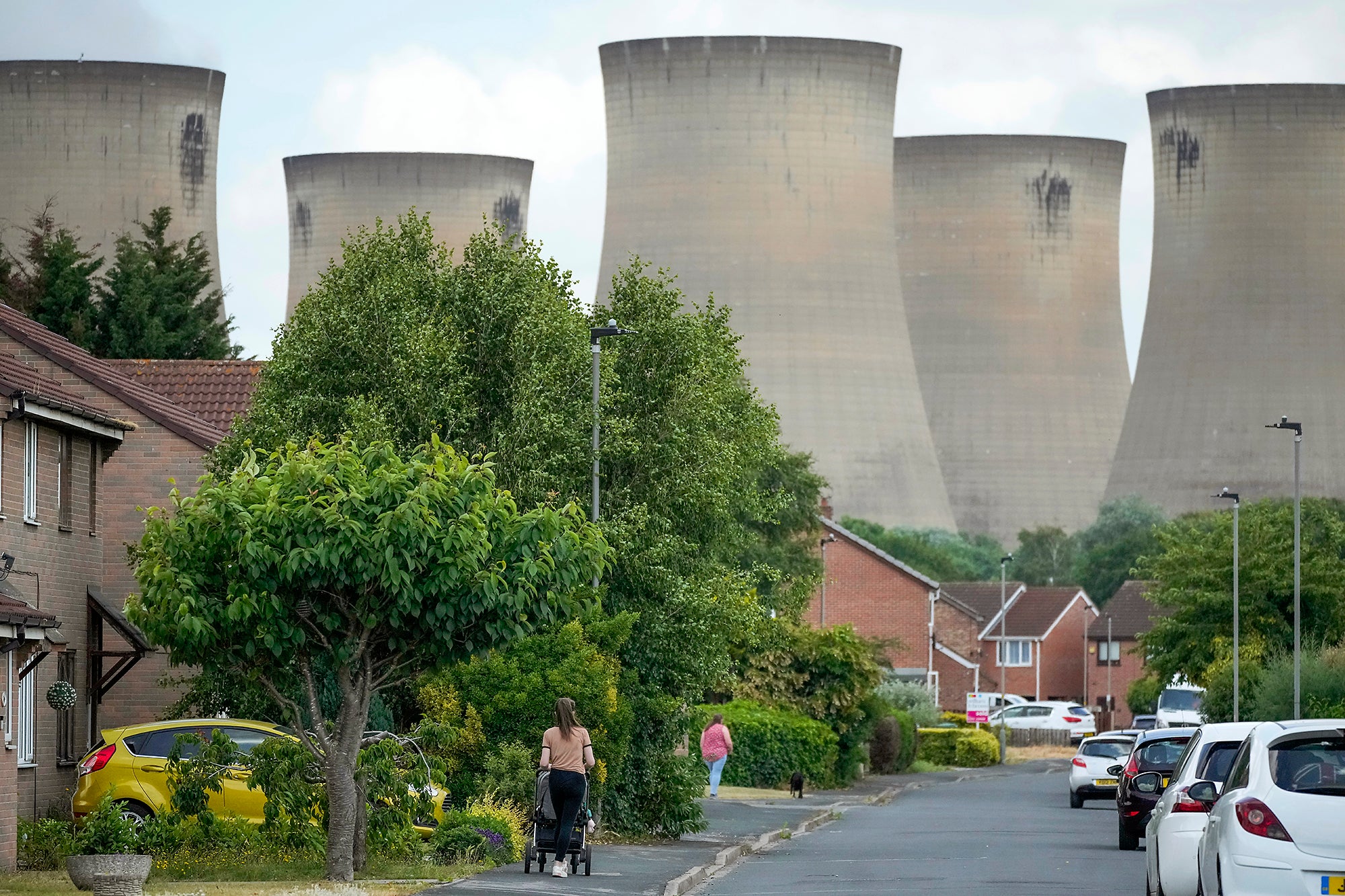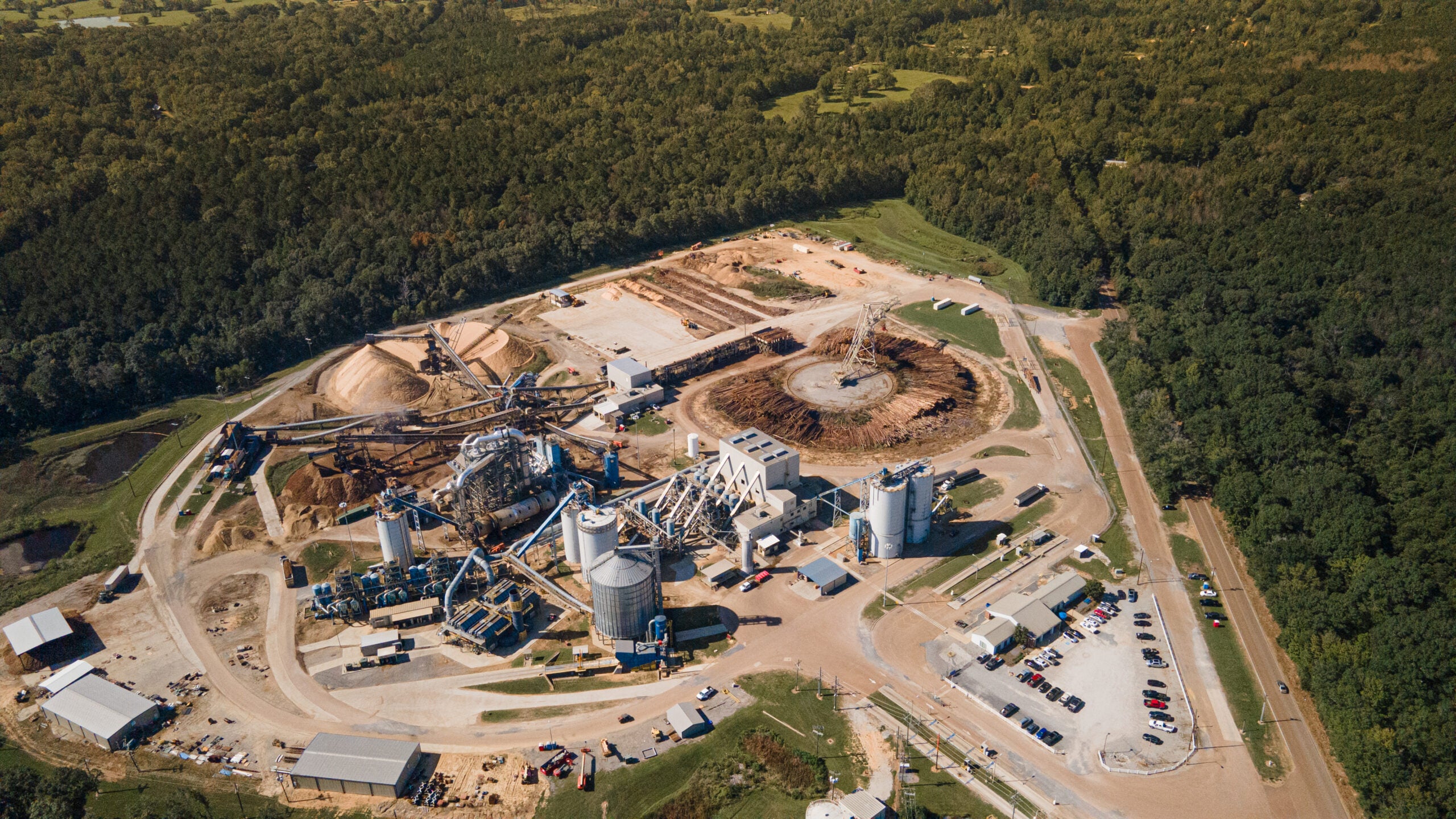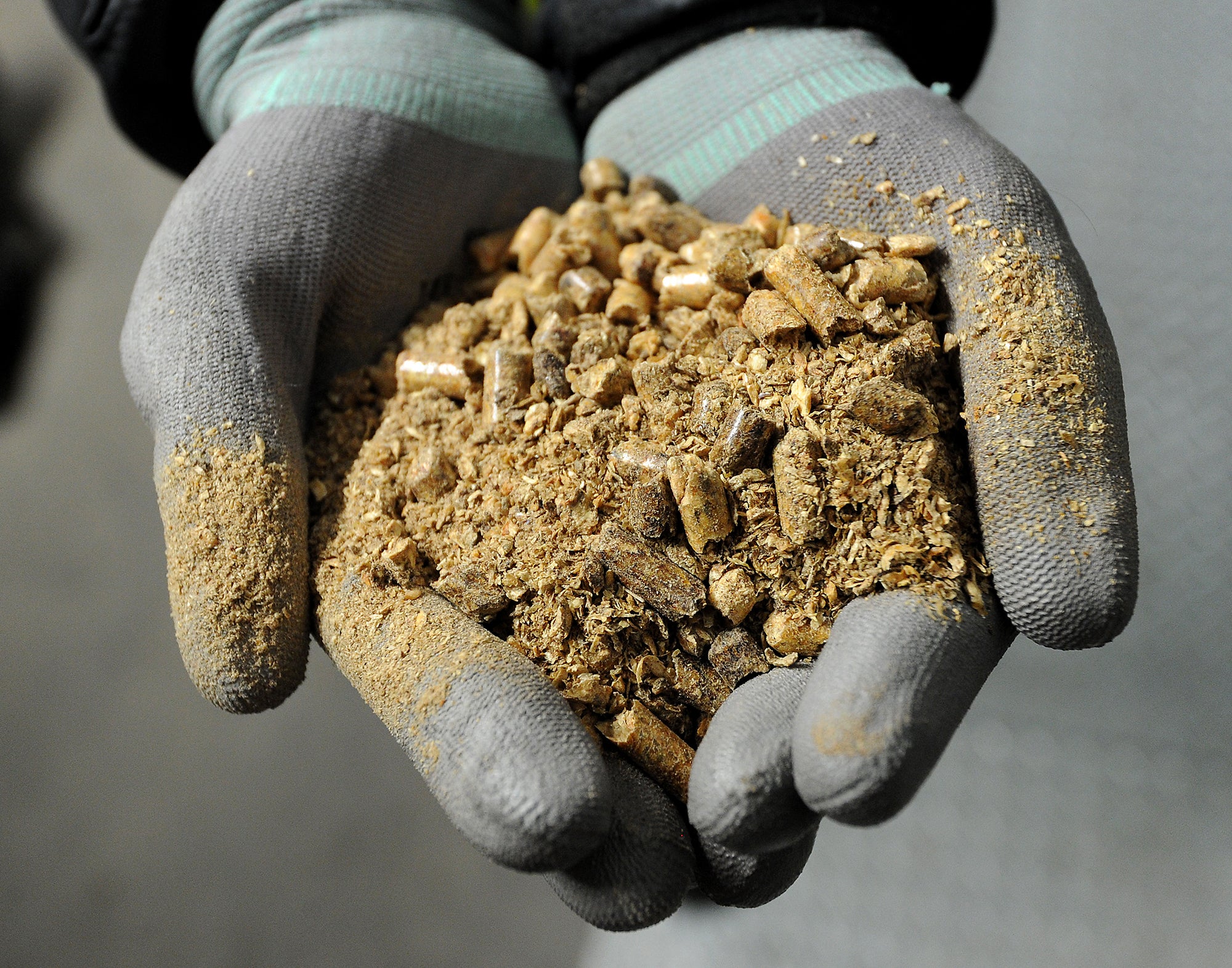The Long Shadow of Drax, a Power Company Masquerading as Green
The U.K. wood pellet manufacturer pollutes low-income U.S. communities
The phrase “wood pellets” may evoke images of cozy cottages heated by wood-burning stoves, but the wood-pellet industry is an air-polluting business undergoing rapid expansion. Wood pellets, small cylinders of densely packed fibers made from chipped up trees and left-over wood fiber, are burned to release energy. Across the Southeastern United States, manufacturers churn them out in massive quantities to be shipped overseas and burned in facilities like Drax Power Station in Selby, England. Earthjustice, alongside partners Southern Environmental Law Center, the Dogwood Alliance, and others, is working to hold the wood-pellet industry accountable — and prevent harmful new plants from being built.

Homes stand near the Drax Power Station in the rural constituency of Selby and Ainsty on June 19, 2023, in Selby, England. (Christopher Furlong / Getty Images)
According to a 2024 report in The Intercept, Drax’s massive U.K. power plant has been touted as green because wood pellets, incorrectly labeled as renewable biomass, have replaced coal as the fuel source. Yet “a growing chorus of environmentalists and scientists are warning that the plant is now more carbon-intensive burning wood than when the plant burned coal,” wrote Intercept reporters Camille Corcoran and Bertie Harrison-Broninski. Drax’s power plant is a climate loss, not a win. And, as we noted in a previous Earthjustice blog, carbon emissions from wood pellets don’t count against governments’ own greenhouse gas reduction targets thanks to an accounting trick. This irrational carbon accounting system (which has raised sharp objections from scientists and economists) has enabled greenwashing and helped propel the growth of companies like Drax Group.
Residents near pellet mills are subjected to a near-constant stream of wood dust and other hazardous air pollutants, many linked to asthma and other significant respiratory issues. The Intercept story zeroed in on a pellet mill in Gloster, Mississippi, run by Drax subsidiary Amite BioEnergy, and the health harms it causes to nearby residents. Alongside the community organization Greater Greener Gloster, Earthjustice is working to hold Drax accountable for polluting Mississippi neighborhoods.

Drax industrial-scale wood pellet manufacturing facility located in Gloster, Mississippi. (Courtesy of Dr. Krystal Martin / Greater Greener Gloster)
As Earthjustice attorney Allison Brouk wrote in a blog: “Gloster is a predominantly Black, rural community located in southwest Mississippi. It is home to 897 people, of which 71% are Black and 38.6% live in poverty. Drax has operated its Gloster facility since 2015 and has been in violation of its air permit every year since. In 2021, the Mississippi Department of Environmental Quality issued a $2.5 million fine to Drax for exceeding its emission limits. In 2023, Drax was again found to be in violation of its air permit. Air and noise pollution concentrations in Gloster far exceed those in other Mississippi towns, and residents’ quality of life has suffered as a result.”
In a recent victory for Gloster and nearby communities, the state effectively told the company it could not simply move the goalpost to increase its profits and toxic emissions at the expense of public health. In the spring of 2025, Mississippi state regulators denied Drax’s request to increase its air pollution limits to the level of a “major source” of hazardous air pollutants (HAPs). Instead, the state ordered Drax to comply with its original permitted emissions limits — marking a win for environmental justice in a region disproportionately burdened by industrial pollution.
The company runs at least 18 wood pellet plants in the Southern U.S. and Canada, many with the same troubling track record of repeated air pollution violations and permit noncompliance.
Meanwhile, Drax wants to expand into the forested Pacific Northwest. It has proposed a new plant in Longview, WA, that aims to export up to 440,800 tons of wood pellets annually. Local watchdogs caught the company beginning construction on its plant before a final permit was even issued, ultimately prompting regulators to issue another fine. Longview, a small town on the Columbia River, successfully fought off the threat of a coal export terminal only a few years ago. Earthjustice is supporting local organizations as they await a draft revised air permit.
Drax and an economic development group, Golden State Natural Resources, have also proposed a plan to construct two industrial-scale wood pellet mills in California. The mills could collectively produce up to 1 million wood pellets annually, for export to Asian markets. The plan further imperils the state’s forested lands, already facing stressors from drought, fire, biodiversity loss, and climate change. Earthjustice has been tracking these developments but is not currently involved in any challenges. Also in California, proposals have surfaced to convert “wood waste” into biomethane. However, these initiatives can result in harmful pollution and greenhouse gases (GHGs), contrary to “green” claims. Earthjustice has protested California Public Utilities Commission approval of a pilot project from utility PG&E that would result in increased GHGs and other air pollutant emissions.
Apart from the climate implications and dangers to public health, there are also concerns that the growing wood-pellet industry will accelerate deforestation. Canadian researchers have tracked the surge of wood pellet exports from British Columbia for shipment to Japan, linked to increased logging in B.C. forests, following a demand spike after the 2011 earthquake and tsunami damaged Japan’s nuclear power facilities. An investigation by the Natural Resources Defense Council and others revealed that a wood pellet manufacturer in the Southeast sourced whole trees from clear-cut sites. Wood pellet manufacturers like Drax simply cannot produce the amounts of pellets they need for export using wood waste alone. And Drax is just one company among others in this expanding energy sector.
The wood pellet industry is endangering the health of people residing near its facilities, emitting greenhouse gases, and accelerating deforestation — all while marketing itself as a sustainable solution to climate change. Unfortunately, some influential actors appear to be persuaded by this greenwashing. For instance, a Wall St. Journal story detailing the financial downfall of pellet manufacturer Enviva mischaracterized the firm as a “green energy superstar.” And some members of Congress seem to be buying into industry’s claims to be green, floating legislative proposals to label biomass energy as “renewable” under federal law, which would benefit industry by unlocking government subsidies and limited scrutiny.
“People are extremely concerned about this,” Earthjustice attorney Ashley Bennett told The Intercept in an interview about Drax’s proposal to open a plant in Washington. “Because they know what communities are going through in the Southeast with the wood pellet industry, and they just don’t want those problems.” The time to reform this industry — and stop its west coast expansion plans — is now.
The Gulf Regional Office works with communities and other partners fighting for a healthy and just future in the Gulf. We work to cut pollution, end fossil fuel expansion, protect our region’s precious places and wildlife, transition to clean energy, and drive climate solutions that work for everyone.
Established in 1987, Earthjustice's Northwest Regional Office has been at the forefront of many of the most significant legal decisions safeguarding the Pacific Northwest’s imperiled species, ancient forests, and waterways.
